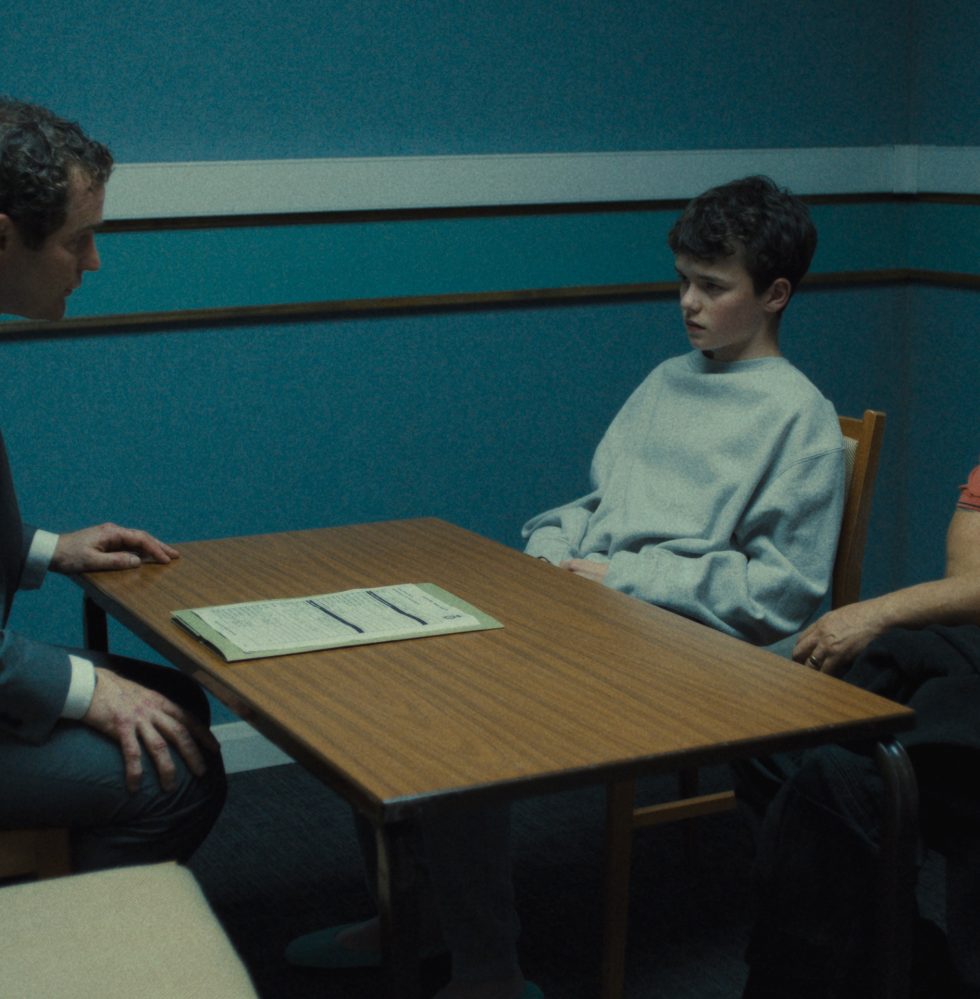
In a series like Adolescence, where the story needs to have a sense of realism, finding the right amount of music can be a difficult challenge. For composers Aaron May and David Ridley, it quickly became apparent that most of their job would involve tracking the emotions of each character and finding the right moments to interject pieces of the score that could support the tension.
Adolescence follows the case of a 13-year-old boy charged with the murder of his classmate, and the people around him trying to find out what happened. Though Katie (Emilia Holliday), the victim, only makes an on-screen appearance through CCTV footage and photos, May and Ridley decided to use her voice as a way to keep her present throughout the series.

‘Adolescence’
Netflix
DEADLINE: When you got involved in Adolescence, did you have an idea of what role the music would play?
AARON MAY: Yeah, so it’s a really interesting one with the format of one shot. The thing that one shot can really bring to film is this sense of realism, and the thing that you don’t want music to do is essentially pierce the believability of things. When we started out, we were unsure of the role of music. We were unsure actually if music was even going to be needed, but gradually it felt that music could help the score and there were several ways it could do that. There’s a kind of supporting role that music can play in terms of helping with transitions as we move between scenes and supporting the tension, but there’s also a bit more of an impressionistic role that the score played in the series where if, for example, we wanted to really study a character and their reaction to something and almost get inside their head, the music could come forward a little bit and comment on an emotional level about what was happening on screen and in the heads of individual characters.
DEADLINE: When you’re talking about not wanting the music to pierce the believability of things, the first episode that comes to mind is where Jamie (Owen Cooper) speaks with the therapist.

‘Adolescence’
Netflix
DAVID RIDLEY: That’s the most lightly scored episode because there’s not many transitions and you’re very much in the room with them, and it’s super intense, absolutely incredible acting, and that’s the first one they shot. The fact that that is Owen Cooper’s first experience of acting is crazy, and I think Erin [Doherty] deserves a huge amount of acclaim for the way that she developed a relationship with him. Her ability as an actor is quite staggering.
Essentially, the theme bleeds into the beginning of the episodes and hopefully captures what we’ve been watching in the first two episodes, and it lasts as we see Erin’s character walk into the ward where the rest of the action takes place. There’s also what Aaron was saying a minute ago that comments on the anxiety in her head, and then there’s another section where she goes out to go to the vending machine and we get this sort of pulsating, textural piece, which leads her out into that corridor. And really, it’s kind of what she’s feeling. It’s this spillover of emotions and it’s the intensity of what’s going on in the room, and she gets a minute just with herself.
MAY: One of the primary layers or colors in the palette of the sound world that we developed throughout the series was the use of this solo female voice, and that solo female voice was actually sung by Emelia Holliday. She’s the actress that plays Katie, who’s the victim in the story. We never actually hear Katie speak, and we see a small amount of footage of her in the CCTV in episode one, but we also see images and photos of her throughout the whole series. The whole thing is really about what happened to her but she never gets to speak, and we landed upon composing music for her as a primary element within the score. Her voice actually starts the episode, and we hear it at the beginning of every episode, but with episode three, we decided to continue that theme as Erin walks into the detention center. And it is an episode where we really break down Jamie’s character, so present in his mind the whole time is Katie.
DEADLINE: Where did the idea come from to have Katie’s voice in the music?
MAY: From the very beginning, there’d been discussions of voice being part of the score. Phil [Barantini, director] has an incredibly close familial relationship or atmosphere on set, and I think it was important to him that Emelia, even though she’s only in a few photos, was able to experience time on set. And through discussions with her, he discovered that she’s a keen singer – untrained, but she’s got this beautifully adolescent and innocent, vulnerable voice.
RIDLEY: We had a session with her, but it was at the end of two days with a choir of 35 school children who were actually from the school where episode two was recorded. And we were there to record “Fragile”, which we arranged specifically for the show, but we had to work with these kids, half of whom were in a choir, half of whom had never sung in their lives. So, we’re working with this roughness, and the idea that they were from that school was important because we wanted their accents and half of them were extras, so they knew about the project. So, Emelia was there those days to sing the final few lines of the song of our arrangement, and then we only had an hour with her at the end of the day, and it was just basically the three of us with Phil, who was there in the background. And it was like, ‘Okay, so we’ve got these demos. They’re very simple lines, but we just need you to relax and do it in the most neutral way possible, so we just hear every detail of your voice without any affectation whatsoever.’ And we ended up doing a call and response exercise for most of it, where we’d sort of sing it halfway to how we would like to hear it, and then she’d just sort of copy it. We would just go back and forth like that for about 45 minutes, and then we’d take it back to the studio and we sort of interpolate it with the rest of the score.



